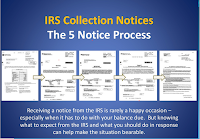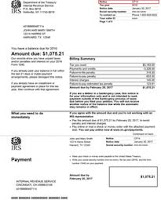The IRS
in IR-2020-142 reminds taxpayers who took advantage of the People First Initiative tax relief and did not make previously owed tax payments between March 25 to July 15, that they need to restart their payments.
As the IRS continues to reopen its operations across the country, taxpayers who were in payment agreements and skipped any payments from March 25 and July 15 should start paying again to avoid penalties and possible default on their agreements.
“Through the People First Initiative, we have endeavored to provide unprecedented relief to help those who owed federal taxes and allow them extra time,”
said IRS Commissioner Chuck Rettig.
“As we resume a phased-in approach to our normal operations, we are sympathetic to the many Americans still suffering COVID-related hardships and stand ready to continue offering help to those who need it.”
Here’s what taxpayers should do to resume their payment agreements to the IRS, including Installment Agreements, Offers in Compromise, and Private Debt Collection program payments:
Installment Agreements
Taxpayers who suspended their installment agreement payments between April 1 and July 15, 2020, will need to resume their payments by their first monthly payment due date after July 15. Taxpayers should be aware that the IRS didn’t default their agreement, but interest did accrue, and the balance remained.
Taxpayers who had their bank suspend direct debit payments should contact the bank immediately to ensure their first monthly payment due date occurring on or after July 15, 2020 is sent to avoid penalties.
If a taxpayer can’t meet their current installment agreement terms due to a COVID related hardship, they can revise the agreement.
Offer in Compromise
Pending Offers: If the IRS is currently reviewing a taxpayer's submitted offer but hasn’t accepted it yet, the taxpayer should resume their required payments starting July 15, 2020. The IRS will amend the taxpayer's offer to allow them to pay any skipped payments at the end of the offer period, if the offer is accepted.
Already Accepted Offers: If a taxpayer has an Offer in Compromise agreement, and the taxpayer was unable to make the payments on their accepted offer because of a COVID-19 hardship, the taxpayer should resume payments and make up the missed payments by July 15, 2020. If the taxpayer is unable to make up the missed payments, they can contact the number on the IRS notice to discuss their situation.
Private Debt Collection
The IRS did not forward new delinquent accounts to Private Collection Agencies (PCAs) from April 1 through July 15, 2020, and PCA interaction with taxpayers was limited to inbound telephone calls unless requested by a taxpayer in a voicemail or correspondence.
Taxpayers who had their PCA payments on hold should resume payments by July 15. The IRS encourages taxpayers to work with their assigned PCA to establish a new payment arrangement or restructure an existing one based on their current situation.
Taxpayers Who Owe But Can’t Pay
The IRS reminds taxpayers who are experiencing a hardship or who have questions about their payments to call the customer service number provided on their notice but be mindful that wait times could be long.
www.TaxAid.com or www.OVDPLaw.com
or Toll Free at 888-8TaxAid
Read more at: Tax Times blog





















